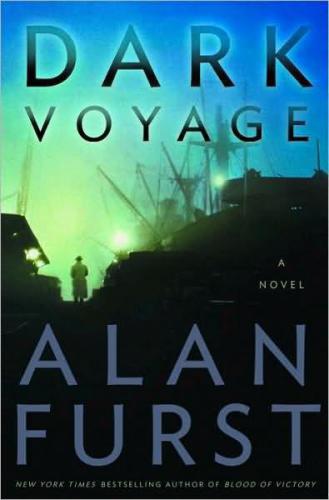
Dark Voyage
Night Soldiers Series, Book 8
کتاب های مرتبط
- اطلاعات
- نقد و بررسی
- دیدگاه کاربران
نقد و بررسی

Starred review from July 19, 2004
It's no secret by now that Furst is a superlative chronicler of World War II, and his new novel is a splendid addition to an accomplished body of work that includes The Polish Officer
and the bestselling Blood of Victory
. His mastery of the atmosphere of that era—its brusque heroes and heroines, its sudden explosions of violence, its strange black glamour—is the fruit of tireless research and an empathetic imagination. His hero this time around is a blunt Dutch sea captain, E.M. DeHaan, whose sturdy but aging merchant vessel is pressed into service on behalf of the British Navy by the exiled Dutch naval intelligence group in London. Disguising his boat as a neutral Spanish freighter, DeHaan somberly and grudgingly takes it several times into harm's way, ferrying British commandos on a North African raid, taking munitions to the beleaguered British garrison on Crete and then, most dangerous of all, on a secret mission to Sweden's Baltic coast. The marine details are so authentic the reader can smell the oil and the brine, and the characters who come aboard and into the captain's life—a valuable Polish naval officer in exile, a Jewish refugee who becomes the ship's doctor, a Russian woman journalist fleeing the Soviets, with whom DeHaan enjoys a brief and dry-eyed romance—are sketched with concise brilliance. The book casts such a spell with its exact evocations of time, place and language that one could swear Furst was a Brit writing out of his own experience in 1941 rather than an American writing today. Agent, Amanda Urban.
(Aug. 10)
Forecast:
Furst has been rapidly developing both his skills and his reputation as a master of that still-alluring world, and this is arguably his finest performance to date, likely to confirm old admirers and win many new ones.

April 1, 2004
Classic Furst: with his Dutch freighter disguised as a neutral Spanish ship, Capt. Eric DeHaan sails the roiling waters of World War II, carrying bombs and commandos for the British and taking on an assortment of refugees.
Copyright 2004 Library Journal, LLC Used with permission.

Starred review from July 1, 2004
It's taken Furst longer than it should have to attract a wide audience, but the acclaim is growing steadily now for his series of historical spy thrillers set in the early days of World War II and featuring a beguiling assortment of unlikely secret agents--Parisian filmmakers, Russian writers, Hungarian emigres. Fitting the mold perfectly is E. M. DeHaan, the captain of the Dutch tramp freighter " Noordenham," a ship without a home since the Nazis invaded Holland. It's 1941 when DeHaan accepts--with that familiar Furstian sense of shrugging inevitability--his new assignment: disguised as a Spanish freighter, the " Noordendam" will be deployed on secret assignments for the British. So the table is set for another serving of Furst's specialty: the shadowy world of clandestine, anti-Nazi operations performed by a band of no-nonsense individualists. As always with Furst, setting conveys both mood and meaning; here, it's a series of neutral or semineutral ports of call--Tangier, Algeciras, Lisbon--that provides the shadows and infuses the action with that ambiguous uncertainty of motive in which Furst's people thrive. The difference this time is that the star of the show isn't DeHaan or his crew or the assortment of fugitives that surrounds them (imagine Peter Lorre and the usual suspects); no, the star--and the quintessential Furst hero--is a ship, the " Noordendam," a tramp in every sense of the word, worked hard and forced to work harder, performing tasks it wasn't made to perform, not out of foolish idealism but because it can.(Reprinted with permission of Booklist, copyright 2004, American Library Association.)

























دیدگاه کاربران